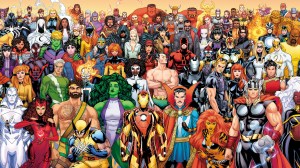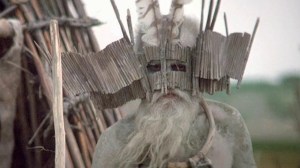
I believe it’s incorrect to say that The Walking Dead is Robert Kirkman‘s greatest co-creation. The series is hugely popular, both as a television series and comic book. It’s one of the remaining pillars in a crumbling monoculture. Yet, the concept of The Walking Dead is hardly original. Kirkman himself has said many times that he envisioned his comic much like a George A. Romero film, but as one that didn’t end. There has been a consistent interest in zombie stories since Romero directed Night of the Living Dead, and Kirkman was a proud part of this gruesome and thrilling tradition. What set The Walking Dead apart from its very first issue wasn’t the zombies, but the protagonist who strode down to Atlanta searching for his family. Kirkman’s greatest creation was Rick Grimes, the perfect hero for the zombie genre.
Videos by ComicBook.com
Grimes walked onto the page fully formed, ready to introduce a new generation to zombies and lead massive survival movements in two mediums, all while consistently evolving as a character. His longevity speaks for itself, guiding the comic book for 192 issues and the television series for nine seasons. He wasn’t simply an enjoyable lead for the story though. Rick’s nature presented both a hero (or anti-hero, depending on your tolerance for murder) who could occupy difficult themes of the 21st century while still garnering a consensus approval among audiences. He was the rare leader who could seemingly speak to an increasingly divisive whole. There are very real reasons why Rick Grimes has resonated both as the perfect hero for the zombie genre and the imperfect, real world those stories help us understand.

Community Leader
While fans of The Walking Dead only catch a glimpse of Rick prior to the zombie apocalypse, his role before the apocalypse helps situate him to lead after the world seemingly ends. Rick was a small town sheriff. It’s pressed upon readers in the first issue just how small town he is, too. When a bank robbery occurs, it is beyond anything in Rick’s experience or expectations. The offices are a small building on main street with just a single chain-link area cordoned off to contain weapons. This both provides him training in law enforcement skills (e.g. mediation, threat assessment, emergency leadership), without associating him with the increased militarization of some police forces. Rick is both a law enforcer and community partner, someone who likely spends as much time getting cats down from trees and assisting stranded drivers as he does investigating crimes.
This position also situates Rick to view his future groups, whether on the road or under a roof, as a community and perceive their collective needs. Just as he was once charged with protecting an entire town, he is now asked to protect new outcroppings of people, no matter the setting. He’s a leader for and of the community, someone capable of seeing the whole picture.

Prepared Helper
It’s easy to view Rick Grimes as a martyr, but his approach to leadership might dispute that idea. Rick has always been primarily concerned with survival, his own, his families, and the communities they’ve formed. Martyrdom suggests a preparedness to give up everything, while Rick has always fought as hard he could to retain as much as he could. Instead, he’s better defined as someone willing to make sacrifices.
Some of these sacrifices are exceptionally obvious. Rick lost his right hand leading a rescue mission and partially lost his ability to walk defeating a tyrant. He looks like a man far older than he is from so many years of stress. That doesn’t even consider the wives, friends, and children who he has lost throughout the years. These big moments shouldn’t overshadow Rick’s smaller sacrifices though, his willingness to compromise and relinquish power to maintain peace and prosperity. Rick Grimes might have finally lost his life, but that was from an assassin’s bullet, not due to any action or readiness to die on his own.
This regular acceptance of sacrifice is what allowed Rick to remain a good leader in a world where so many others go bad. Rick Grimes portrayed a fundamental understanding that the good of a society, specifically a democratic society, demands that everyone give something. He then lived that idea through his final breath.

Resolute Idealist
With so many examples of rising above a terrible situation, it becomes easy to forget that there have been moments where Rick faltered or failed. On his way to constructing Alexandria and joining with The Commonwealth, he made some terrible decisions and killed a lot of people. His character arc functions like Joseph Conrad’s Heart of Darkness, if there was a trail home. Rick’s ideals about protecting the weak, democratic forms of government, and saving human life whenever possible are not made weaker by this. In fact, his return to ideals whenever possible makes him all the more inspiring as a hero.
He is a leader who can acknowledge the deep mistakes from the past, then use that knowledge to correct those mistakes when possible and do better in the future. Following the destruction of the prison, it’s easy to see how desperate Rick and his surviving community became, and how that led to some truly horrifying scenarios. Yet when he led them from that wreckage, it would eventually result in the current community that has returned a reliable form of society to the world.
While Rick Grimes still exists in a post-apocalyptic world, the community he has formed is something to envy. It’s a reminder of why the zombie genre is so potent, not only because it reminds us that things can always get worse, but that human beings are capable of fighting through the worst of times. Rick Grimes offers a hero who embodies shared values, things like a community focus, willingness to sacrifice, and democratic ideals, and then uses these to rebuild the world. That makes him not only a perfect hero for zombie stories, but for our world as well.








